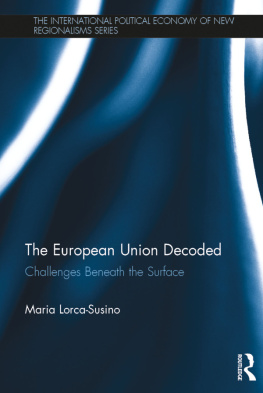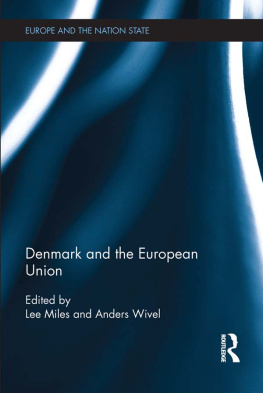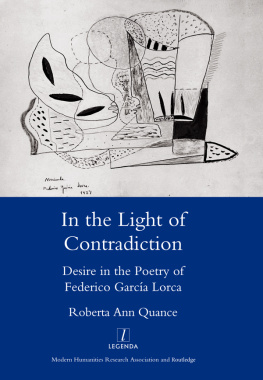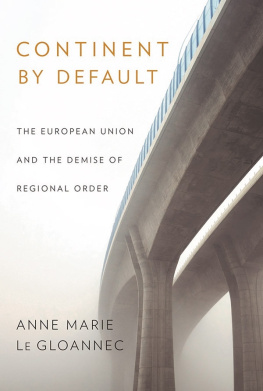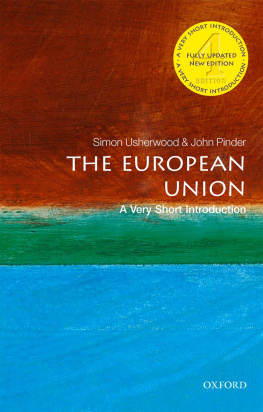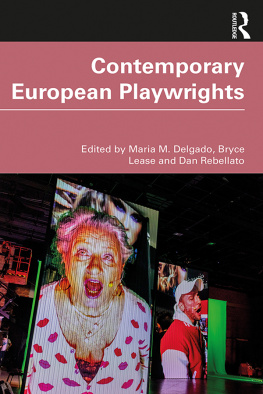The European Union Decoded
The European Union (EU) and the Eurozone became the economic integration example to follow for years. However, the worldwide economic crisis that unfolded in 2007 put the whole economic integration process in question, the European project in jeopardy, and the euro under pressure, with serious doubts that it can survive its first crisis.
The core argument of this book is twofold. First, it seeks to explain the difficult political, economic, and fiscal idiosyncrasies of all member states in order to put the reasons for the economic crisis into a new and clear perspective. Second, it argues that the institutional response put forward to explain this tremendous crisis is flawed and dangerous because it does not solve the main underlying problem: the deep differences between member states on their understanding of economic and financial behavior. This study counters the leading institutional explanation for the economic crisis that has impacted the entire EU.
It presents a unique and provocative explanation of why the EU and the Eurozone are still immersed in an economic crisis and will be of key interest to students and scholars of European Politics and Economics.
Maria Lorca-Susino is Lecturer in Economics at the School of Business Administration, University of Miami, USA.
The I nternational P olitical E conomy of N ew R egionalisms S eries
Series editor Timothy M. Shaw
The International Political Economy of New Regionalisms Series presents innovative analyses of a range of novel regional relations and institutions. Going beyond established, formal, interstate economic organizations, this essential series provides informed interdisciplinary and international research and debate about myriad heterogeneous intermediate-level interactions. Reflective of its cosmopolitan and creative orientation, this series is developed by an international editorial team of established and emerging scholars in both the South and North. It reinforces ongoing networks of analysts in both academia and think-tanks as well as international agencies concerned with micro-, meso- and macro-level regionalisms.
1 Crisis and Promise in the Caribbean
Politics and convergence
Winston Dookeran
2 Contemporary Regional Development in Africa
Edited by Kobena T. Hanson
3 Eurasian Regionalisms and Russian Foreign Policy
Mikhail A. Molchanov
4 Africa in the Age of Globalisation
Perceptions, misperceptions and realities
Edited by Edward Shizha and Lamine Diallo
The European Union
Decoded
Challenges beneath the surface
Maria Lorca-Susino
First published 2017
by Routledge
2 Park Square, Milton Park, Abingdon, Oxon OX14 4RN
and by Routledge
711 Third Avenue, New York, NY 10017
Routledge is an imprint of the Taylor & Francis Group, an informa business
2017 Maria Lorca-Susino
The right of Maria Lorca-Susino to be identified as author of this work has been asserted by her in accordance with sections 77 and 78 of the Copyright, Designs and Patents Act 1988.
All rights reserved. No part of this book may be reprinted or reproduced or utilised in any form or by any electronic, mechanical, or other means, now known or hereafter invented, including photocopying and recording, or in any information storage or retrieval system, without permission in writing from the publishers.
Trademark notice: Product or corporate names may be trademarks or registered trademarks, and are used only for identification and explanation without intent to infringe.
British Library Cataloguing in Publication Data
A catalogue record for this book is available from the British Library
Library of Congress Cataloging in Publication Data
Names: Lorca-Susino, Maria, author.
Title: The European Union decoded / Maria Lorca-Susino.
Description: New York, NY : Routledge, 2016. | Includes bibliographical references and index.
Identifiers: LCCN 2016002127| ISBN 9781472474933 (hardback)
Subjects: LCSH: European Union countriesEconomic integration. | European Union countriesEconomic integrationPolitical aspects. | European Union countriesEconomic policy. | European Union countriesEconomic conditions21st century. | Global Financial Crisis, 2008-2009.
Classification: LCC HC241 .L675 2016 | DDC 337.1/42dc23
LC record available at http://lccn.loc.gov/2016002127
ISBN: 978-1-472-47493-3 (hbk)
ISBN: 978-1-315-61647-6 (ebk)
Typeset in Times New Roman
by Swales & Willis Ltd, Exeter, Devon, UK.
Every effort has been made to contact copyright holders for their permission to reprint material in this book. The publishers would be grateful to hear from any copyright holder who is not here acknowledged and will undertake to rectify any errors or omissions in future editions of this book.
To Victoria
Professor Lorca-Susino has written a book with the suggestive and intriguing title of The European Union Decoded. It is aimed at the U.S. public, although I hope that many Europeans and others around the world will read it. It would be useful to them. Given Lorcas background as an economist, one might think that her reflections would focus and be limited to the crisis of the euro. But her work is not limited to an economic analysis. It places her ideas in the historic and political context of the European Union and some of its member nations. It is a work of political economy that perfectly matches Clemenceaus famous phrase that War is too important to be left to the generals. The creation and implementation of the euro as a currency is not an issue limited to economists, bankers, and speculators. Understanding this required digging into political as well as economic questions.
One very interesting aspect of the book is that it looks at the euro from the point of view of the United States. This is not only an exercise in comparative economics, because the DNA of the European currency includes some U.S. genes, as shown by the passions displayed by prominent American economists who study the creation and survival of the euro.
The start of of Canadian Nobel prize winner Robert Mundell, father of the theory of optimum monetary areas, as a precursor of the euro and defender of its viability.
In his keynote address to the Jean Monet conference in 2011, Mundell proposed a series of profound reforms, based on the lessons drawn from historic comparisons with the United States. His proposals focused on the creation of a single Finance Ministry with budgeting powers over member states. In his opinion, Europes fundamental choice is either to move backwards to recover the independence of member states in the areas of fiscal controls and debt, or to move forward toward a strong central power. Both options are difficult, although not impossible, because this system requires a large transfer of sovereign powers. Member states that do this would earn a positive financial image and a financial system similar to the one in the United States. It would also benefit greatly from the creation of eurobonds for the Eurozone, although it would be dangerous to create them before controls on budgets and policies are put in place.
In fact, the euro was created and survived the crisis because of support from citizens. In the words of Joseph Schumpeter, the Austrian-American economist who served as Austrias Finance Minister after World War I and before he migrated to the United States, a nations monetary system reflects everything that its people are, want and lack. The history of the euro shows that the Europeans who share it not only adopted it as a currency but have clearly declared their support for keeping it, as shown by the cases of Greece, Portugal, Ireland, Spain, Italy, and even Germany when faced with the populism reflected in the case of the Herren Professoren Doktoren. The proof is that the Eurozone, created by 12 member states, has grown to 19 members and has a waiting list. And not because of blind faith, but because people understand the power of galloping globalization and the need to confront it in a united manner.


